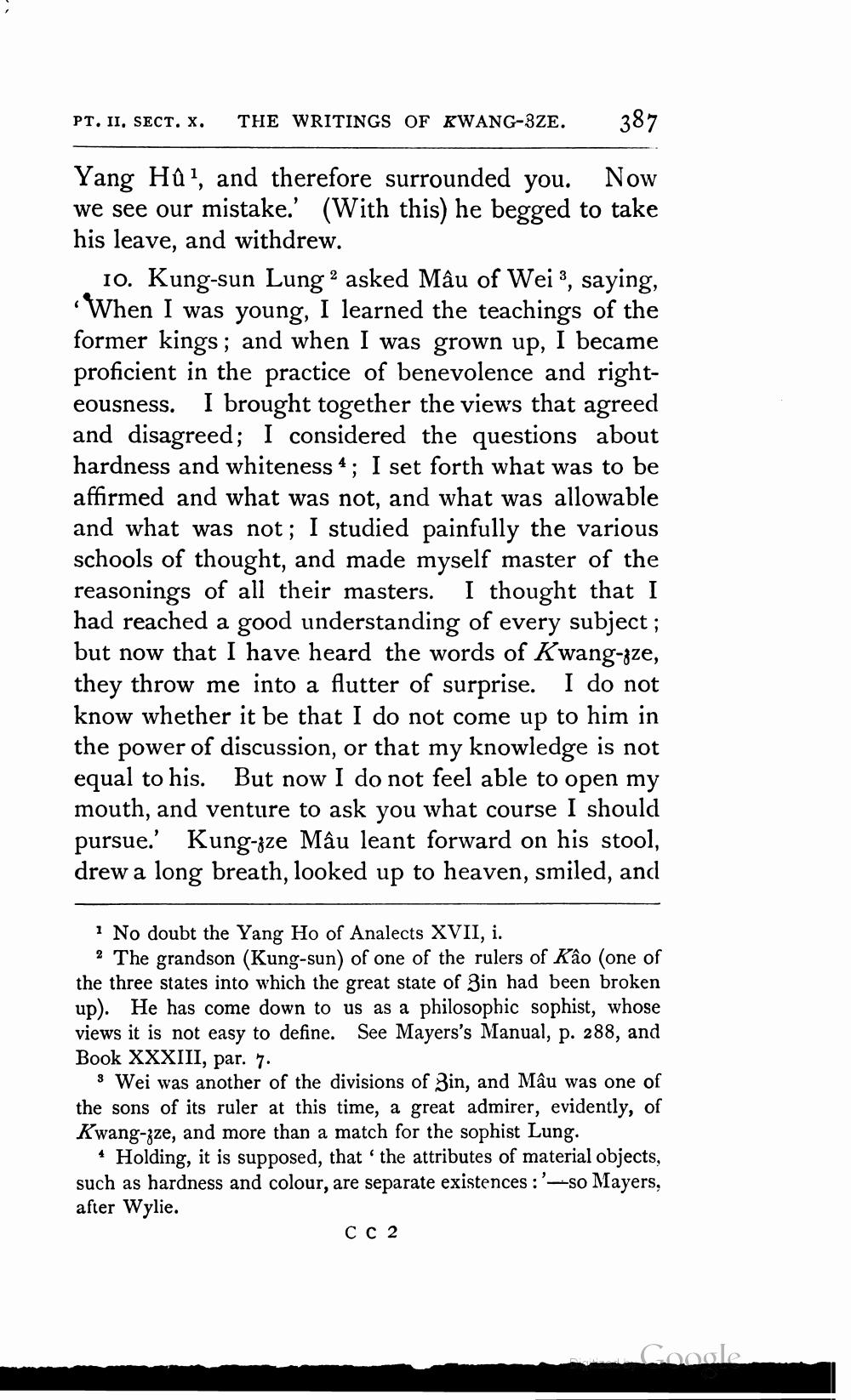________________
387
Now
Yang Hû1, and therefore surrounded you. we see our mistake.' (With this) he begged to take his leave, and withdrew.
PT. II. SECT. X. THE WRITINGS OF KWANG-3ZE.
10. Kung-sun Lung 2 asked Mâu of Wei 3, saying, When I was young, I learned the teachings of the former kings; and when I was grown up, I became proficient in the practice of benevolence and righteousness. I brought together the views that agreed and disagreed; I considered the questions about hardness and whiteness; I set forth what was to be affirmed and what was not, and what was allowable and what was not; I studied painfully the various schools of thought, and made myself master of the reasonings of all their masters. I thought that I had reached a good understanding of every subject; but now that I have heard the words of Kwang-zze, they throw me into a flutter of surprise. I do not know whether it be that I do not come up to him in the power of discussion, or that my knowledge is not equal to his. But now I do not feel able to open my mouth, and venture to ask you what course I should pursue.' Kung-ze Mâu leant forward on his stool, drew a long breath, looked up to heaven, smiled, and
1 No doubt the Yang Ho of Analects XVII, i.
2 The grandson (Kung-sun) of one of the rulers of Kâo (one of the three states into which the great state of 3in had been broken up). He has come down to us as a philosophic sophist, whose views it is not easy to define. See Mayers's Manual, p. 288, and Book XXXIII, par. 7.
3 Wei was another of the divisions of 3in, and Mâu was one of the sons of its ruler at this time, a great admirer, evidently, of Kwang-zze, and more than a match for the sophist Lung.
Holding, it is supposed, that the attributes of material objects, such as hardness and colour, are separate existences:'-so Mayers, after Wylie.
C C 2
Google




